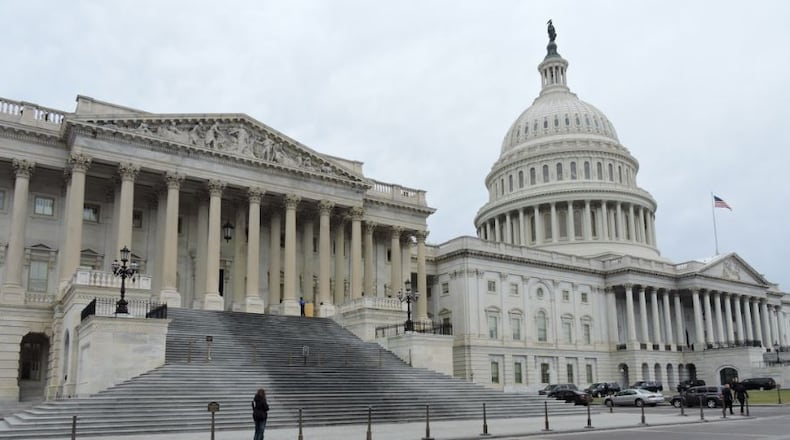There was no rush from lawmakers in either party in Congress to rally around a plan floated by the White House on Thursday, which would pay for the construction of a wall along the southern border with Mexico by levying a 20 percent tax on imports from that country, as members of both parties signaled their displeasure.
"This would be a tax on Americans to pay for the wall," said Rep. Justin Amash (R-MI), echoing assertions from economists who say the costs would just be passed along to consumers.
On the Democratic side of the aisle, Rep. Jared Polis (D-CO) called the idea "disastrous."
The basic outline of the tariff plan was set out on Air Force One by White House Press Secretary Sean Spicer, after President Trump had spoken in Philadelphia to Republican lawmakers gathered for a GOP retreat.
"Right now our country’s policy is to tax exports and let imports flow freely in, which is ridiculous," Spicer told reporters, arguing this would be a simple way to fund the border wall.
"It clearly provides the funding and does so in a way that the American taxpayer is wholly respected," Spicer said.
But a few hours later, the White House was already backtracking, telling reporters the tariff was one of a number of options that was being considered.
By that point, it was publicly obvious the concept wasn't going far with members of either party.
"Border security yes, tariffs no," said Sen. Lindsey Graham (R-SC), who raised worries about President Trump sparking a trade war with the Mexicans, as he gently mocked Mr. Trump on Twitter.
Others were more direct, like Rep. Lloyd Doggett (D-TX).
Trade with Mexico certainly is a different issue for states like Texas.
"It would impact Texas more than other state," said Michael Davis of the Cox School of Economics at Southern Methodist University.
"Texas exports close to $100 billion in stuff to Mexico. We’re tied up in the Mexican economy," Davis added.
The top Republican in Congress from Texas was not sold on the idea of new border taxes either.
"Many unanswered questions about proposed "border adjustment" tax," Sen. John Cornyn (R-TX) said on Twitter.
Trade with Mexico is also big over in Arizona, where Sen. Jeff Flake (R-AZ) - who has clashed at times with Mr. Trump - made clear that a trade war will hurt on both sides of the border.
"Since NAFTA was adopted, U.S. exports to Mexico have gone from $68 billion in 1994 to $235 billion in 2016," Flake said.
"Trade is good for all of us."
One note - for such a tariff to be levied on Mexico, it would need Congressional approval, which right now would seem to be an uphill climb.
About the Author
The Latest
Featured


